Case Studies of Successful Manufacturing Businesses Lessons Learned
Manish kumawat
Last Updated on: 21 January 2026
Do you know?
More than 700,000 manufacturing companies are based in the United States only (source). Then what about the global count?
To reach and stay on the list of leading manufacturing businesses, you need to do something unique. If you are tired of guessing your way through the manufacturing world, here we are going to share some real-life stories of manufacturing companies that succeeded in their mission and how they achieved it.
As the world market for General Manufacturing is projected to reach US$944.6 Billion by 2030, you can harvest a huge profit in the coming days by learning from the success stories (source). From innovative startups to industry veterans, we'll uncover the strategies, challenges, and triumphs that shaped their journeys. So, join us as we explore the blueprints for manufacturing success.
Case Studies: Learning from Others' Victory
We all love hearing about business success stories because they inspire us and make us think, "If they can do it, maybe I can too!" Case studies aren’t just stories that make us feel good—they’re like cheat codes for life!
When you dive into real stories of people who reached their goals, it’s like getting a VIP pass to see how they did it. You learn the steps they took, the mistakes they made (yes, even successful people mess up), and the strategies that worked. It’s like having a mentor who’s already figured things out and is showing you the way.
Case studies can save you time and frustration. You can learn from other people's experiences, avoiding their mistakes instead of learning things the hard way. Plus, they can spark new ideas or show you opportunities you hadn't thought of before.
They also give you confidence. Seeing how others overcome challenges makes you feel like you can do it too. "If they succeeded, why can’t I?"
So, don’t just go through the success story given below. Take time to really understand it and learn from it. You’ll be surprised at how much it can help you grow and see things differently.
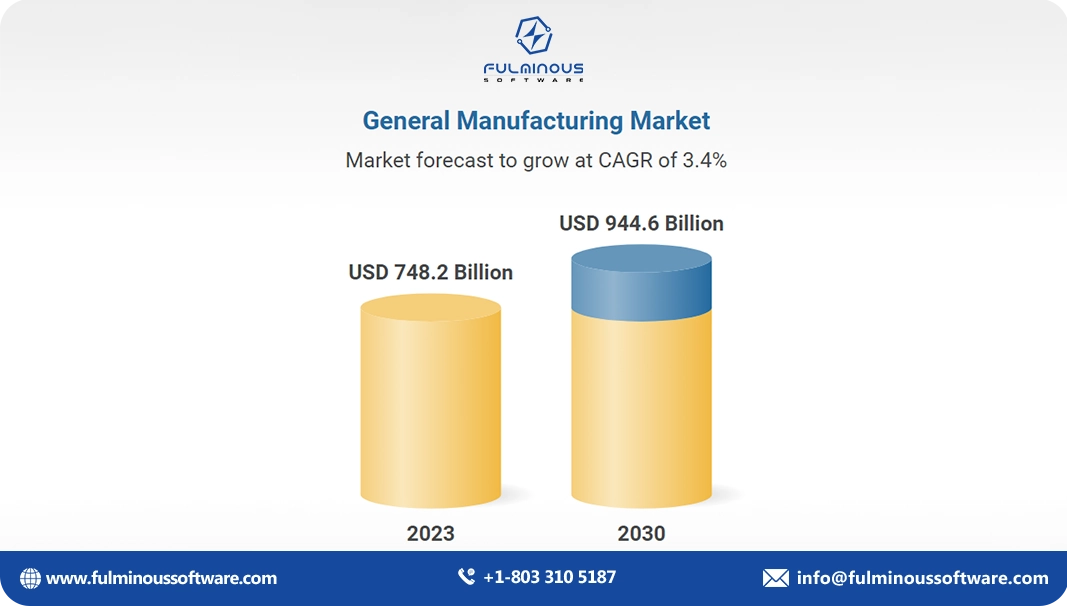
3 Case Studies of Successful Manufacturing Businesses
Case Study 1: Armstrong Industrial Corporation’s Digital Transformation
Company Info:
Armstrong Industrial Corporation, founded in 1974, is the world's leading firm with advanced foam, film, and elastomer solutions for noise, vibration, heat, and safety management. Armstrong has more than 50 years of expertise in the business and has made a name for itself in Asia as a reliable partner in a variety of industries, such as retail and office productivity, automotive, consumer and industrial, data storage, healthcare, medical, and lifestyle. The company's expertise lies in developing and manufacturing high-performance materials that address complex challenges across various industries.
Challenges Faced by Armstrong Industrial Corporation:
- Manual Process Inefficiencies: Production and quality control processes were largely manual, leading to inefficiencies and inconsistencies in product output.
- Limited Data Visibility: The company lacked real-time data and analytics, making it difficult to monitor manufacturing performance and make informed decisions.
- Slow Product Development: Product development cycles were lengthy due to manual testing and validation processes, affecting time-to-market for new products.
- Reactive Maintenance: Maintenance of equipment was reactive rather than proactive, resulting in unexpected downtimes and increased maintenance costs.
- Inconsistent Customer Service: The absence of integrated systems led to delays and inconsistencies in responding to customer inquiries and managing orders.
Solution Implemented by Fulminous Software:
The story of Armstrong Industrial Corporation is an ideal example of digital transformation in manufacturing case study. To address these challenges, Armstrong Industrial Corporation partnered with Fulminous Software to implement a comprehensive digital transformation solution. The solution included:
- IoT-Enabled Manufacturing Systems: Deployment of IoT sensors and devices across production lines to monitor equipment performance, track production metrics, and collect real-time data.
- Advanced Analytics Platform: Introduction of a cloud-based analytics platform to aggregate and analyze data from various sources, providing actionable insights for improving manufacturing processes.
- Digital Twin Technology: Utilization of digital twin technology to create virtual models of production processes, allowing for simulation, testing, and optimization of new products before physical production.
- Predictive Maintenance Solutions: Implementation of predictive maintenance algorithms to anticipate equipment failures and schedule maintenance proactively, reducing downtime and maintenance costs.
- Integrated Customer Relationship Management (CRM) System: Integration of a CRM system to streamline customer interactions, improve order management, and enhance customer service responsiveness.
| Challenges Faced by the Fulminous Team in the Project | How Fulminous Overcame Challenges |
|---|---|
|
|
|
|
|
|
|
|
Results
The digital transformation initiative led by Fulminous Software resulted in significant improvements for Armstrong Industrial Corporation:
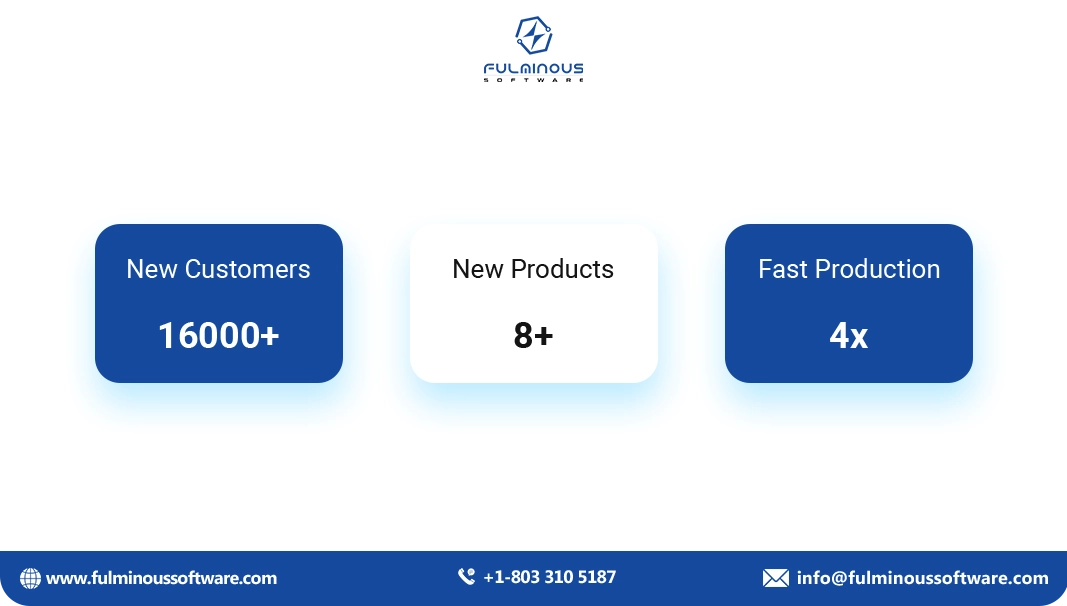
- IoT-enabled systems and real-time data analytics improved production efficiency by 30%, leading to faster production cycles and reduced operational costs.
- Digital twin technology shortened product development cycles by 25%, accelerating time-to-market for new products and innovations.
- Predictive maintenance solutions reduced equipment downtime by 35%, minimizing maintenance costs and improving overall production reliability.
- The integrated CRM system enhanced customer service response times by 40%, leading to higher customer satisfaction and retention rates.
- Real-time data and advanced analytics enabled better resource management, resulting in a 20% reduction in material waste and energy consumption.
Armstrong Industrial Corporation’s successful digital transformation, driven by Fulminous Software, has significantly enhanced its manufacturing processes, product development, and customer service capabilities.
Case Study 2: Successful IoT Integrated Gear Tech Manufacturing Business
Company Info:
Gear Tech is a prominent manufacturer specializing in the production of precision gears and transmission components for the automotive and aerospace industries. Founded in 1980, Gear Tech has established itself as a leader in its niche, known for its commitment to quality and innovation. With a state-of-the-art manufacturing facility and a skilled workforce, Gear Tech serves clients globally, providing essential components that meet the highest industry standards.
Challenges Faced by Gear Tech:
- Manual Production Monitoring: The absence of real-time data made it difficult to monitor production processes, leading to inefficiencies and delays.
- Frequent Equipment Failures: Unexpected breakdowns of critical machinery resulted in significant downtime and increased maintenance costs.
- Inconsistent Product Quality: Quality control relied heavily on manual inspections, which were time-consuming and prone to human error, affecting product consistency.
- High Operational Costs: Inefficient energy usage and unoptimized production processes led to elevated operational costs.
- Limited Data Visibility: Gear Tech struggled with limited visibility into production data, which hindered effective decision-making and process improvements.
Solution Implemented by Fulminous Software
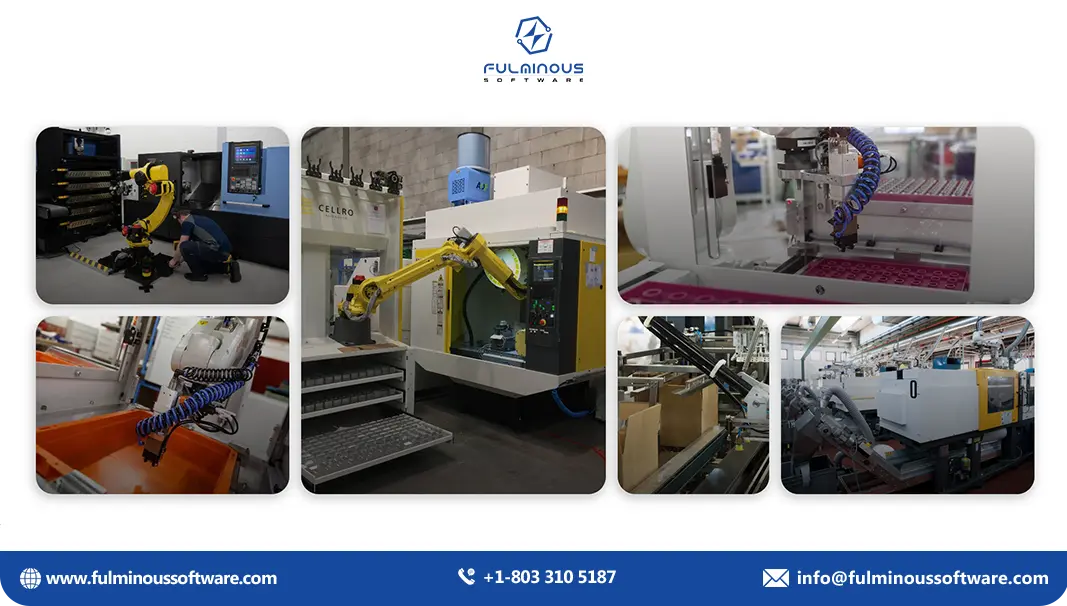
Fulminous Software, an expert in IoT integration, partnered with Gear Tech to implement a comprehensive IoT solution designed to address these challenges. The solution included:
- IoT-Enabled Sensors: Deployment of IoT sensors across production lines to monitor critical metrics such as machine performance, temperature, and vibration in real-time.
- Automated Quality Control: Implementation of IoT-based automated quality control systems to ensure consistent inspection and high product quality.
- Energy Management: Integration of an IoT-based energy management system to monitor and optimize energy consumption, reducing overall costs.
- Centralized Data Analytics Platform: Development of a centralized data analytics platform that collects, processes, and analyzes data from all IoT devices, providing actionable insights for process optimization.
| Challenges Faced by Fulminous Team in Project | How Fulminous Overcame Challenges |
|---|---|
|
|
|
|
|
|
Results
The integration of IoT solutions by Fulminous Software led to significant improvements in Gear Tech’s manufacturing operations:
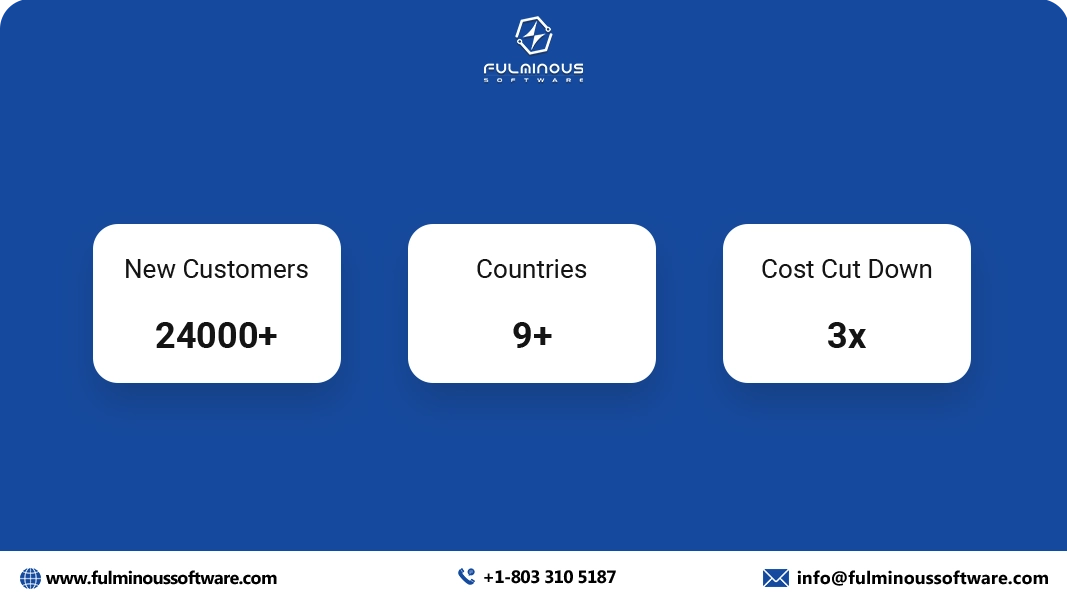
- Real-time monitoring and data-driven insights resulted in a 28% increase in overall production efficiency.
- Predictive maintenance reduced unexpected equipment failures by 32%, significantly lowering maintenance costs and improving uptime.
- Automated quality control systems decreased defect rates by 40%, ensuring consistent and high-quality output.
- The centralized data analytics platform provided Gear Tech with critical insights, allowing for more informed and timely decision-making.
- The supply chain of the company also saw a drastic change.
The successful IoT integration by Fulminous Software transformed Gear Tech’s manufacturing processes, addressing key operational challenges and driving notable improvements in efficiency, product quality, and cost management.
Case Study 3: Pauling Industries- Conquering the Industry With IoT, AI, and ML Technologies
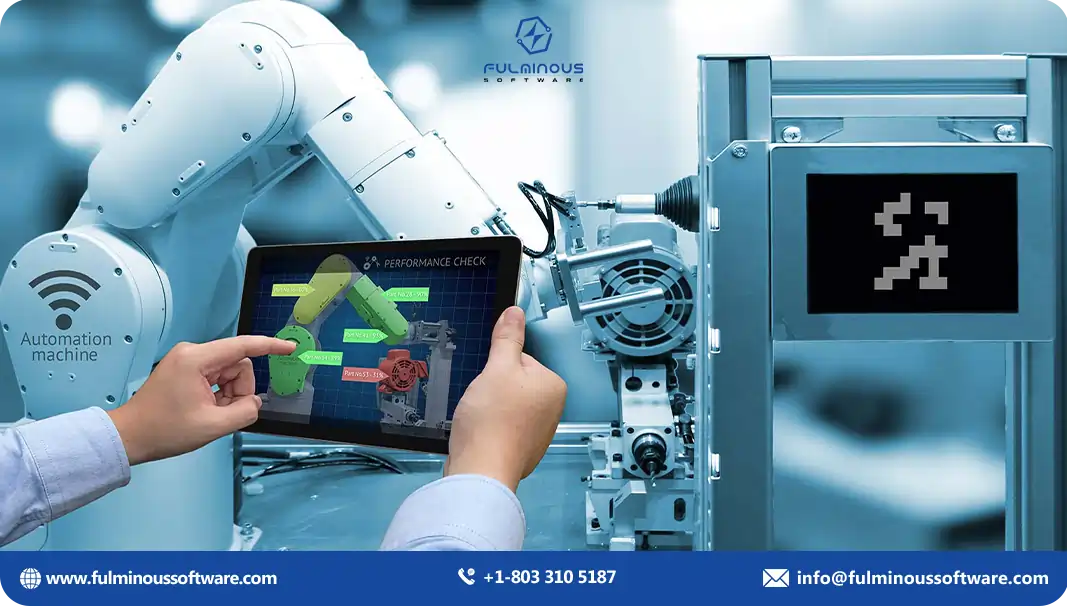
Company Info:
Pauling Industries is a distinguished leader in the manufacturing of skincare, cosmetics, and toiletries. With decades of experience and a team of highly qualified experts, Pauling Industries has earned its reputation as a trusted manufacturer across a variety of personal care categories. The company is renowned for its commitment to innovation, quality, and customer satisfaction, offering a wide range of products that meet the diverse needs of its clients.
Challenges Faced by Pauling Industries:
Before integrating IoT, AI, and ML technologies, Pauling Industries encountered several operational challenges:
- Manual Quality Control: Quality assurance processes were manual and time-consuming, leading to inconsistencies in product quality and increased inspection times.
- Inefficient Production Scheduling: Production schedules were managed manually, resulting in inefficiencies and frequent delays due to unforeseen production bottlenecks and equipment downtime.
- Limited Predictive Capabilities: The absence of predictive analytics meant that equipment maintenance was reactive rather than proactive, causing unexpected breakdowns and increased downtime.
- Lack of Data-Driven Insights: Without advanced data analytics, it was challenging to gain actionable insights into production performance, customer preferences, and market trends.
- Inconsistent Customer Engagement: Managing customer interactions and feedback was fragmented, leading to slower response times and less effective customer relationship management.
Solution Implemented by Fulminous Software:
To address these challenges, Pauling Industries partnered with Fulminous Software to implement a comprehensive digital transformation solution that incorporated IoT, AI, and ML technologies:
- IoT-Enabled Quality Control Systems: Deployed IoT sensors throughout the production line to monitor real-time quality metrics and automate inspections, ensuring consistent product quality.
- AI-Powered Production Scheduling: Implemented AI algorithms to optimize production schedules, predict potential bottlenecks, and adjust workflows dynamically, enhancing overall production efficiency.
- ML-Driven Predictive Maintenance: Utilized machine learning models to predict equipment failures before they occurred, allowing for proactive maintenance and reducing downtime.
- Advanced Data Analytics Platform: Introduced a cloud-based analytics platform to collect and analyze data from various sources, providing valuable insights into production performance and market trends.
- Integrated CRM System: Implemented a CRM system enhanced with AI to manage customer interactions, analyze feedback, and tailor engagement strategies, improving customer service and satisfaction.
| Challenges Faced by Fulminous Team in Project | How Fulminous Overcame Challenges |
|---|---|
|
|
|
|
|
|
Results
The integration of IoT, AI, and ML technologies led to significant improvements for Pauling Industries:
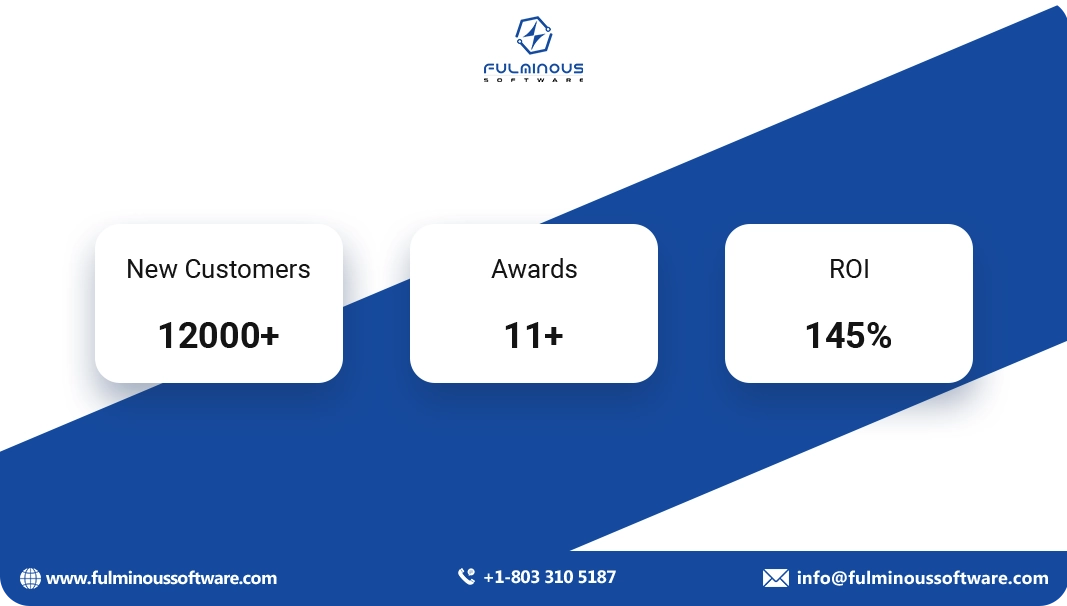
- IoT-enabled quality control reduced product defects by 40%, ensuring consistent quality across all production batches.
- AI-powered scheduling improved production efficiency by 30%, reducing downtime and streamlining workflows.
- ML-driven predictive maintenance cut equipment downtime by 35%, leading to lower maintenance costs and improved operational reliability.
- The advanced analytics platform provided actionable insights that boosted production performance by 25% and allowed for more informed strategic decisions.
- The integrated CRM system enhanced customer engagement and response times by 50%, resulting in higher customer satisfaction and retention rates.
Pauling Industries’ successful digital transformation, driven by Fulminous Software, demonstrates the transformative power of IoT, AI, and ML technologies in the personal care manufacturing industry.
Digital Transformation, IoT, ML, and AI: The Key to Success in the Manufacturing Industry
The above-mentioned case studies clearly describe the power of the latest technologies like digital transformation, IoT, AI, and ML. Imagine a manufacturing plant where machines talk to each other, figure out problems before they happen, and make stuff super fast and perfect. Sounds like a science fiction movie, right? Well, it's actually happening right now! That’s the magic of digital transformation, IoT, AI, and ML.
Now let us explore it. It's like giving your factory a complete redesign with digital transformation. The goal is to use technology to increase productivity and intelligence throughout the process. The uniqueness of IoT development is giving your devices superpowers. They are able to communicate and exchange information, so you are always aware of what's going on.
AI development is the system's central nervous system. It is similar to having an extremely intelligent robot that is able to identify patterns in vast amounts of data. This facilitates factories' efforts to improve and speed up their processes.
Together, these techs are changing the scenario for manufacturing. These trending technologies help your manufacturing business to make products faster, cheaper, and better. Plus, they make factories safer and more sustainable.
Digital transformation, IoT, ML, and AI are changing the game for factories. See the cool things they can do for your manufacturing business:
- Supercharge Production: Make things faster, better, and cheaper.
- Predict Problems: Machines can tell you when something's about to go wrong, so you can fix it before it's a big deal.
- Less Waste: Smart tech helps cut down on materials and energy use.
- Happy Customers: Make products that people love by understanding their needs better.
- Safer Workplaces: Reduce accidents with smart safety systems.
- Money Saver: Cut costs on everything from energy to repairs.
- Happy Employees: Give workers better tools to do their jobs.
- Know Your Stuff: Get a clear picture of what's happening in your factory.
- Make Better Decisions: Make smart choices with data.
- Stay Ahead of the Competition: Be the coolest factory on the block.
- Go Green: Help the planet by being more sustainable.
- Future-Proof Your Business: Get ready for whatever comes next.
Need Help with Tech Stuff? No Problem!
So, you're ready to implement these technologies and turn your factory into a super smart operation.
But who can help you make it happen?
There are a bunch of people who can lend a hand. First up, you've got IT experts who know computers inside and out. They can help you set up all the systems and make sure everything talks to each other. Next, you'll need assistance from data scientists. These genius techies can help you make sense of all the data your factory is collecting. Data scientists can find patterns and trends that can help you improve things.
Then there are industrial engineers. They know factories like the back of their hands. They can help you figure out how to use the new tech to make your factory run smoother. And of course, you can't forget about consultants. These are people who specialize in helping businesses like yours adopt new technology and can offer valuable advice.
You may think that it's challenging to hire all these people and I have no time to search for these people!
Then we have the ideal option for you, that is: You can hire an experienced software company like Fulminous Software with all these experts and experience. There are plenty of resources out there to support you on your digital transformation journey.
Conclusion
We have seen how manufacturing companies like Armstrong, Gear Tech, and Pauling were struggling with old-tech ways of making stuff. Their factories were slow, broke down a lot, and it was hard to keep track of everything. But then they discovered the magic of trending tech like IoT, AI, ML, and various methods of digital transformation!
With the help of a smart software company called Fulminous, they totally transformed their businesses. They used fancy computer stuff to make their factories super efficient, cut costs, and make better products.
If you want to win in the world of manufacturing, you gotta go digital. These companies are proof that tech can work miracles. So, ditch the old ways and embrace the future! Let's learn from their success stories and build amazing factories together! Chat Now
FAQs
- Q1: What is digital transformation in manufacturing?
- A: Digital transformation involves integrating advanced technologies like IoT, AI, and ML to improve efficiency, quality, and innovation in manufacturing.
- Q2: How does IoT improve manufacturing processes?
- A: IoT enables real-time monitoring of equipment and production metrics, reducing downtime, enhancing quality control, and optimizing resource use.
- Q3: What are the benefits of AI in manufacturing?
- A: AI optimizes production schedules, improves decision-making, and enhances quality control, leading to increased efficiency and reduced operational costs.
- Q4: What difficulties do manufacturers have when becoming digital?
- A: Integrating new technologies with existing legacy systems, ensuring data security and compliance with regulations, and training employees to adapt to new digital workflows.
- Q5: How can digital twin technology benefit product development?
- A: Digital twin technology allows manufacturers to simulate and optimize products virtually, reducing development time and improving product quality.
- Q6: Can small manufacturers benefit from digital transformation?
- A: Yes, even small manufacturers can gain competitive advantages by improving efficiency, reducing costs, and enhancing product quality through digital technologies.
- Q7: What’s the first step in adopting digital transformation?
- A: Conduct a comprehensive assessment of current processes, determine the possible ROI and important areas for improvement, and develop a clear roadmap for integrating new technologies.
HIRE A TOP SOFTWARE DEVELOPMENT COMPANY

 Verified
Expert in Software & Web App Engineering
Verified
Expert in Software & Web App Engineering
I am Manish Kumawat, co-founder of Fulminous Software, a top leading customized software design and development company with a global presence in the USA, Australia, UK, and Europe. Over the last 10+ years, I am designing and developing web applications, e-commerce online stores, and software solutions custom tailored according to business industries needs. Being an experienced entrepreneur and research professional my main vision is to enlighten business owners, and worldwide audiences to provide in-depth IT sector knowledge with latest IT trends to grow businesses online.
Partner with Top-Notch Web Application Development Company!
Discuss your Custom Application Requirements on info@fulminoussoftware.com or call us on +1-903 488 7170.
15 Days Risk-Free TrialRecommended Articles


